[Original by Ko IMANAKA, Sudan Project (June 17, 2020); Translated by E. Miyazaki/A. Taguchi]
In my previous blog, I wrote about an armed conflict between different ethnic groups and how it evolved into an attack towards the civilians in each village. In this blog, I will report about JVC’s emergency food support for the evacuees.
Surveying the evacuees in the Hil Jadeeda region
The number of registered evacuees is often not precise since a survey is done by the local government right after incidents occur and when people are still in unstable situations or confusion. While taking these government reports into account, it is necessary to investigate in more detail by ourselves. JVC staff visited Hil Jadeeda and conducted hearing sessions to survey the following: the number of people in each family, their places of birth, their places of residence, the level of damage to their houses, their will of returning to their hometowns, the accessibility to government service (healthcare, medical care, and water), the support availability, and the concerns they have.
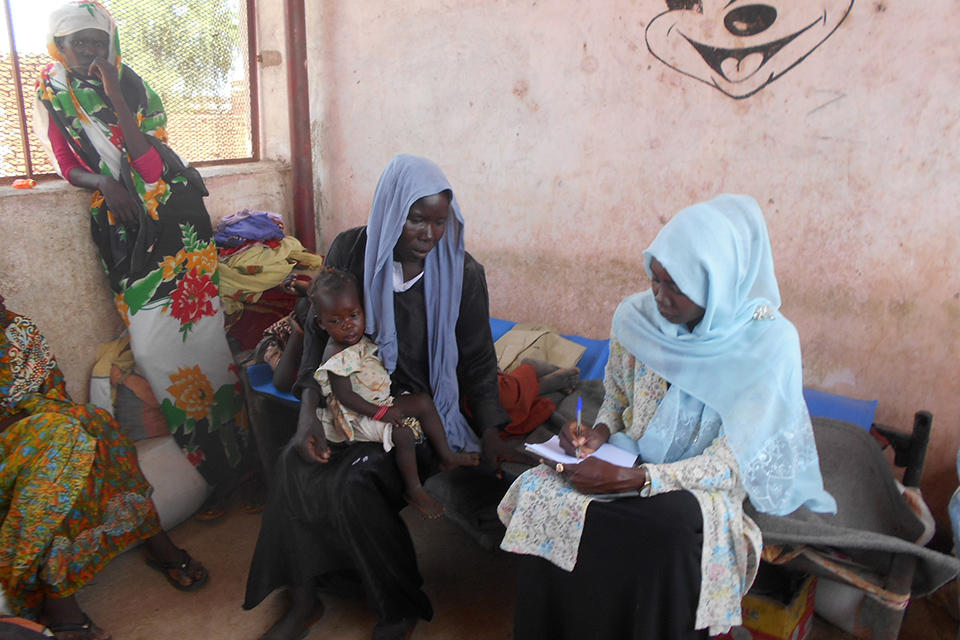
Sarah (on the right), a JVC staff, surveying a woman who evacuated to the kindergarten built by JVC.
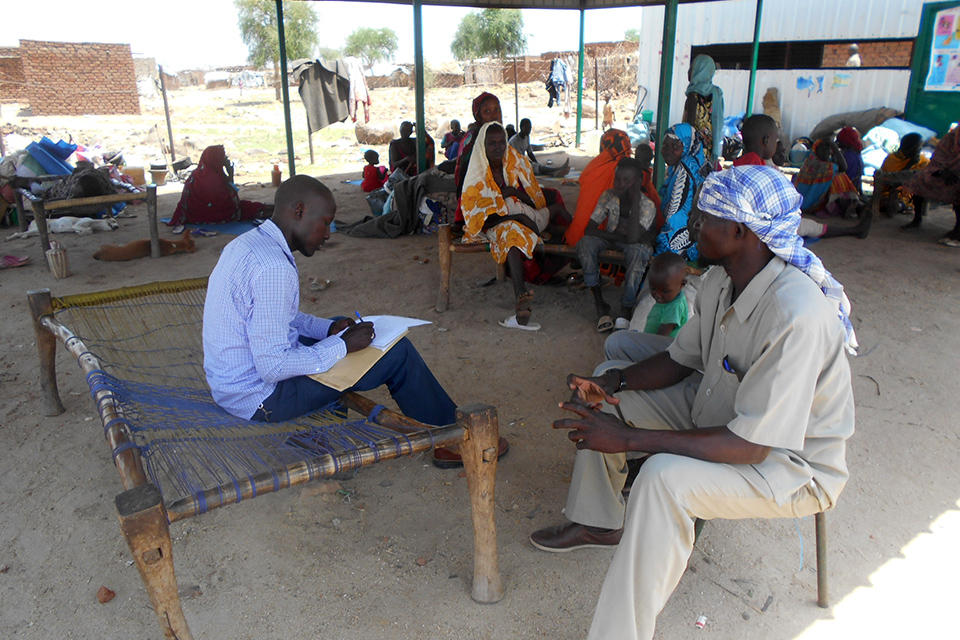
JVC staff Ismeil (on the left) surveying the residents and their leader.
80 percent of the evacuees are women and children. We also realized from the survey that many residents’ houses were destroyed and that their belongings were stolen. There were quite a few people who did not have plastic sheets or mattresses. They were laying their prayer mats directly on a concrete floor or soil to sleep. There were requests for commodities such as clothing, containers to carry water, and kitchen utensils, but we decided to supply mainly food including sorghum, a staple grain similar to corn, lentils, sugar, salt, oil, and soap to each household. This was because the supply provided by the administration was not enough.
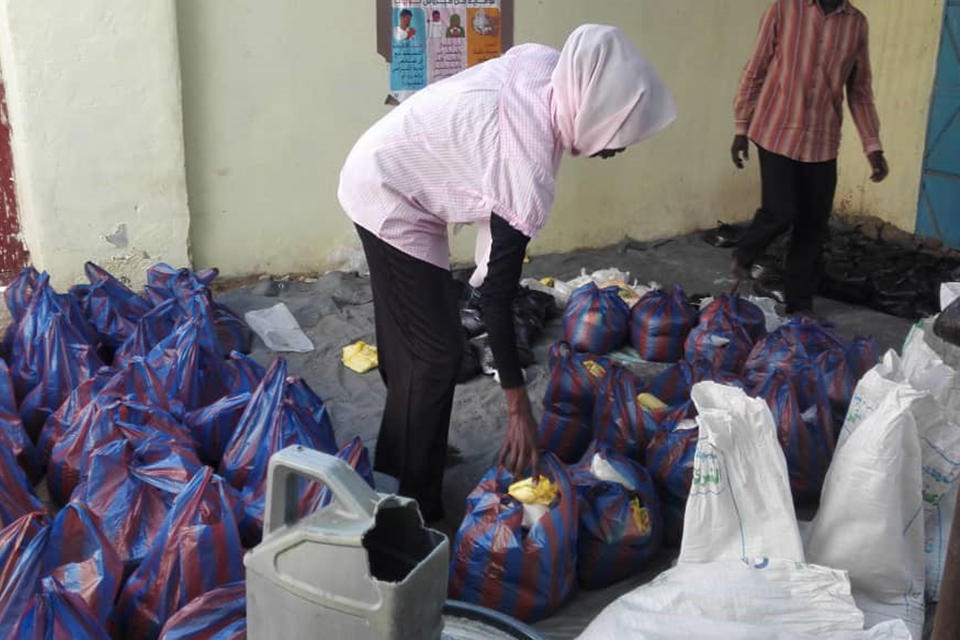
JVC staff packs food supply per family.
Distribution of food and voices of the people
The evacuees and the residents helped us carry the food supplies enthusiastically at the time of distribution. We were able to hand out food for two weeks to 1,123 people of the 162 families who evacuated to a school, a kindergarten, and the community center in Hil Jadeeda.
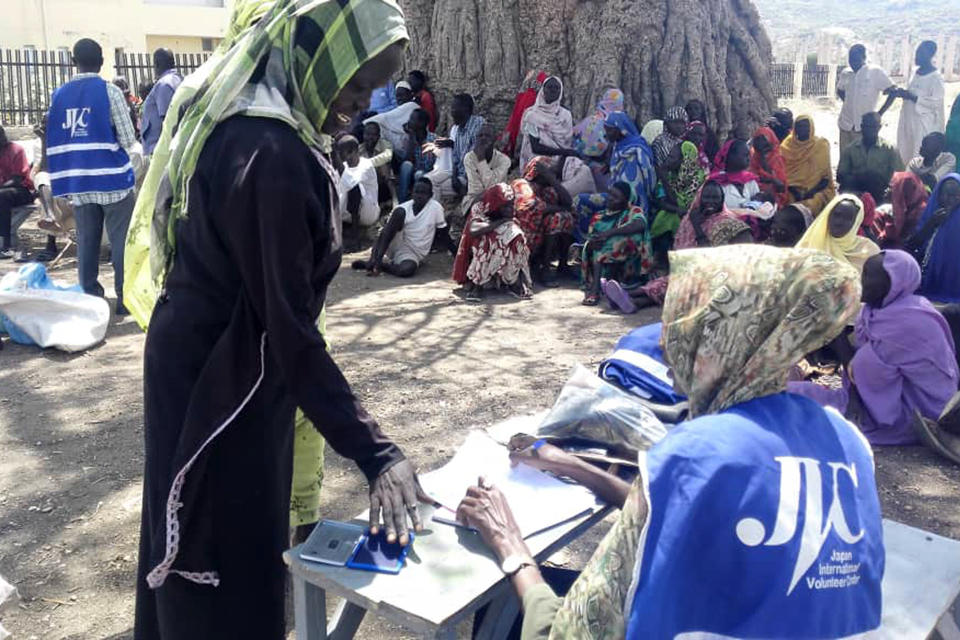
We distributed food in the presence of the leader of the residents.
Koko Hammad, a resident, says:
“JVC is the first NGO that came over to help us, and we are truly grateful to them. Everyone including me is especially happy about the extra supply of salt, sugar, and oil. We were worried because we only had little sorghum and pasta left. We are too frightened to go back to Tilow where we used to live. We were given land on the outskirts of Hil Jadeeda, but we have no materials to build a house, so we started collecting tree branches. We don’t know what will happen to us.”
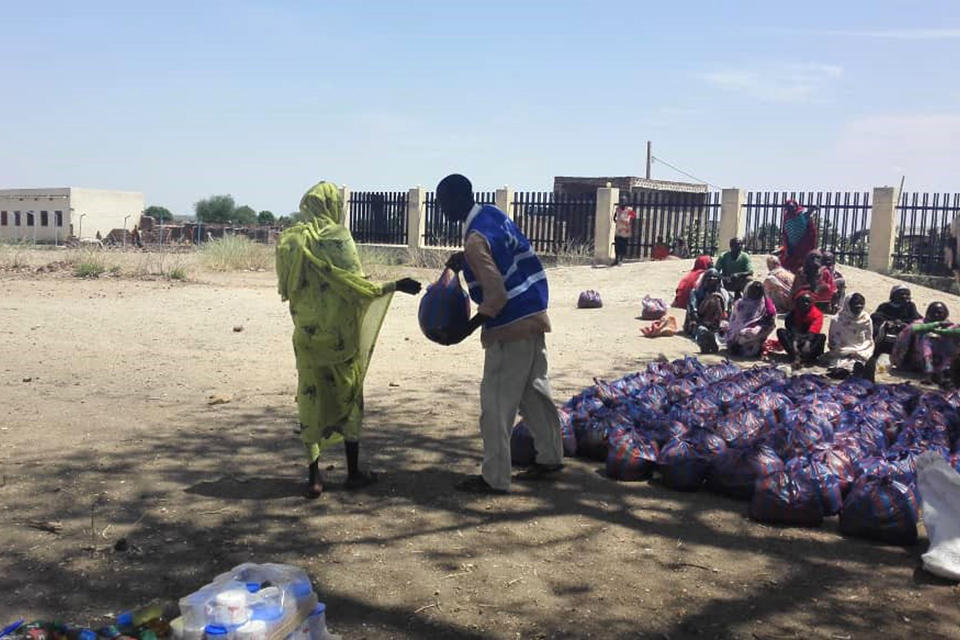
A woman receiving food supply.
Ahmad’s thought
As I mentioned in my previous blog, Ahmad, a staff member of JVC belonging to the Arab herders Hawazma, had two of his relatives killed in this armed conflict. One was killed while shopping at the market, and the other while riding on a rickshaw. Both did not take part in combat. That night, he stayed outside to guard his house against the attacks by the armed group of Nuba. His wife, child, parents, and his brother’s family have evacuated to the state where their relatives live.
Despite these circumstances, Ahmad is going forward, saying, “The people who are in refuge in Hil Jadeeda are Nubas, but I have no fear of nor anger at them. I hope peace can be restored and South Kordofan, as well as Kaduqli, become stable. I want to learn about peace studies in graduate school while working.”
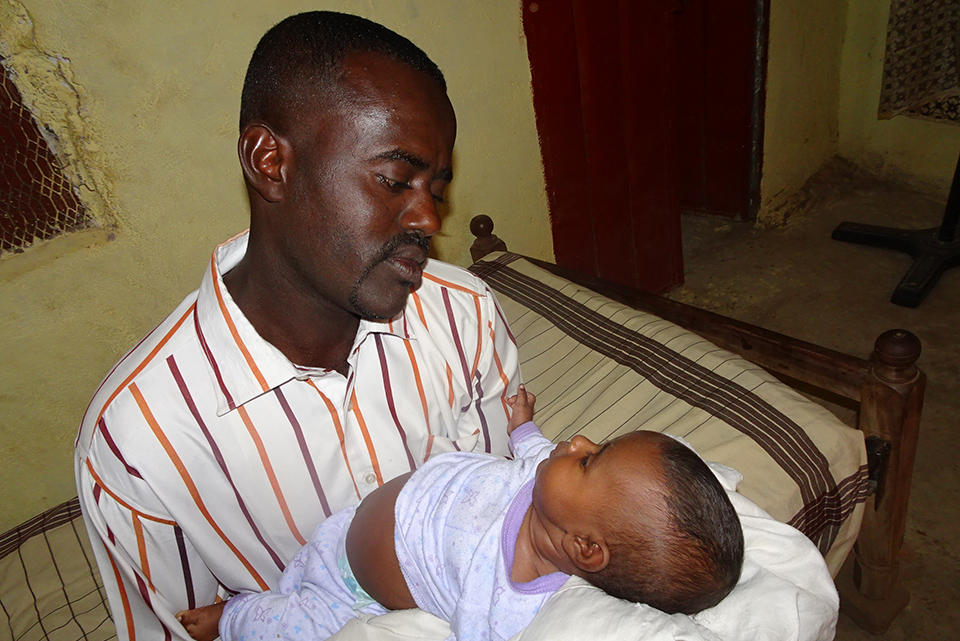
Ahmad’s first daughter was born at the end of last year.
